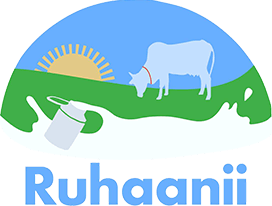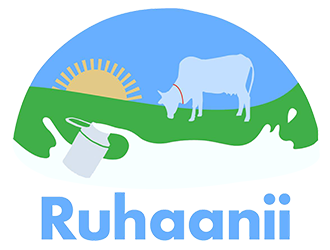 The Animal breeding services includes providing quality AI services at farmer doorstep using top genetics available in the country with an aim of producing superior calves with higher productivity. Artificial insemination is not merely a novel method of bringing about impregnation in females. Instead, it is a powerful tool mostly employed for livestock improvement. In artificial insemination the germplasm of the bulls of superior quality can be effectively utilized with the least regard for their location in far away places. By adoption of artificial insemination, there would be considerable reduction in both genital and non-genital diseases in the livestock.
The Animal breeding services includes providing quality AI services at farmer doorstep using top genetics available in the country with an aim of producing superior calves with higher productivity. Artificial insemination is not merely a novel method of bringing about impregnation in females. Instead, it is a powerful tool mostly employed for livestock improvement. In artificial insemination the germplasm of the bulls of superior quality can be effectively utilized with the least regard for their location in far away places. By adoption of artificial insemination, there would be considerable reduction in both genital and non-genital diseases in the livestock.
Objective
- To provide quality AI services at Farmer’s door step with using semen of high genetic disease-free merit bull.
- To provide efficient service to improve the conception rate & reduce the inter-calving period.
- To provide infertility management support to dairy farmers.
- To provide advisory services to farmer like animal health, animal breeding and nutrition for creating awareness about profitable dairy animal management.
- To capture and maintain the breeding data of all the inseminated animals linked to unique identification number.
Ruhaanii Milk Producer Company Limited recruits’ local youths and provide training to them in Standard Operating Procedure (SOP) of AI, in accredited training centres. Apart from giving importance to hygiene while providing AI service, the SOP includes compulsory ear tagging for identification of animals, follow-up after 21-days of insemination for repeat heat, pregnancy diagnosis after 90 days and calving follow-up. After training, candidates are given adequate field exposure, and then provided with necessary equipments and are deployed in field to deliver quality AI Service to the farmers at their doorstep. For providing efficient monitoring and field extension support for breeding service delivery operations, Ruhaanii Milk Producer Company’s Mobile AI Technicians (MAITs) are organized into territories with nearly 10 AI per territory.
To provide animal breeding service to rural consumers, the Mobile AI Technicians are motivated and mandated to provide on call AI service at the farmers’ doorstep. Once contacted for providing AI service, AI Technicians-
- Checks the animal for heat symptoms on arrival at the farmer’s place.
- If the animal is in heat, provides AI service following the SOP.
- Fixes an Ear-Tag to the animal’s ear for identification, recording of events and future follow-up.
- Collects service charge and provides a receipt for the same, with details of the animal owner, the animal inseminated and the bull whose semen doses is used for AI.
As a part of after service support, the MAIT follows up the inseminated animals after 21 days. Those animals, which have not repeated subsequent to AI, are followed up compulsorily for pregnancy diagnosis 3 months after AI at farmer’s doorstep at no additional cost. The animals, which do not conceive even after three consecutive AIs, are declared problem breeders, are treated for infertility by qualified Veterinarians who are deployed for every Mobile AI Technician (MAIT).
Apart from this, Animal identification with ear tags with a common numbering system, at no extra charge to farmers is an important activity that was mostly ignored by other organized breeding programs running in the country. Animal identification, creation and maintenance of computerized database for information processing, 21 day and 90-day follow-up of all animals inseminated, and providing diagnosis and consultancy for infertile animals were hitherto perceived as non-essential and non-value adding activities. However, these actions are necessary- to maintain a nation-wide database of breeding service effectiveness, and serve as an important link with farmers to establish faith of the dairy farmers in AI service.
Advantages of Artificial Insemination
There are several advantages by artificial insemination over natural mating or servicing.
- There is no need of maintenance of breeding bull for a herd; hence the cost of maintenance of breeding bull is saved.
- It prevents the spread of certain diseases and sterility due to genital diseases’: contagious abortion, vibriosis.
- By regular examination of semen after collection and frequent checking on fertility make, early detection of interior males and better breeding efficiency is ensured.
- The progeny testing can be done at an early age.
- The semen of a desired size can be used even after the death of that particular sire.
- The semen collected can be taken to the urban areas or rural areas for insemination
- It makes possible the mating of animals with great differences in size without injury to either of the animal.
- It is helpful to inseminate the animals that refuse to stand or accept the male at the time of oestrus.
- It helps in maintaining the accurate breeding and cowing records.
- It increases the rate of conception
- Old, heavy and injured sires can be used.

